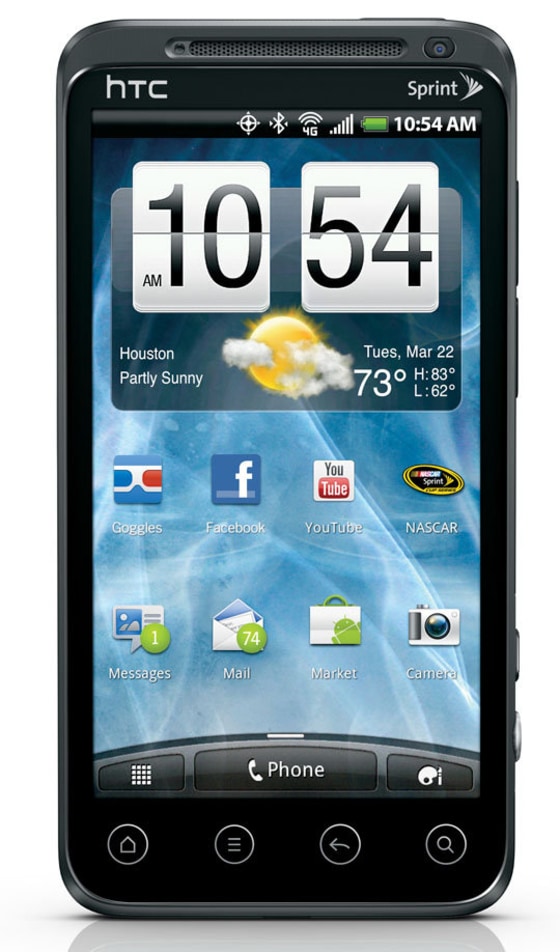Sprint disabled the controversial Carrier IQ key-logging software from its customers phones last month, and now is beginning the process of removing the software from the phones themselves.
"As we are no longer using the tool, we have decided to remove Carrier IQ from all devices through a maintenance release process," said Sprint spokeswoman Stephanie Vinge, in an email to msnbc.com.
"The tool will be removed through an over-the-air software update process," she said. "This means that — as we do for other device updates and maintenance releases — you will receive notice on your device of a maintenance update and upon initiating the update, the software will be removed. We are carefully testing this process first on each device to limit any potential inconvenience for customers as much as possible."
Among the first phones to receive the Carrier IQ software wipeout is the HTC Evo 3D."Folks who have checked around in the manage applications tab have noticed that 'HTC IQAgent' and "'IQRD,' both of which were Carrier IQ, are no longer present on the device after the update," said Android Central in a recent report.
You will notice that HTC IQAgent and IQRD are now no longer listed on the device," said Android Authority, in a recent report.
HTC confirmed to The Verge that it is working with Sprint to get rid of the software on its phones carried by Sprint.
Sprint was the first to say it would get rid of Carrier IQ; AT&T and T-Mobile, which also use the software, have not publicly said what they will do. Verizon Wireless does not use the software.
Carrier IQ, which says its software is used only to help with network diagnostics, has been under fire for a few months since an independent researcher discovered the software can track the activities of phone users, including text messages.
The company, whose software is on 141 million cellphones around the country, has said that isn't the case, that its software "does not record, store or transmit the contents of SMS (text) messages, email, photographs, audio or video. For example, we understand whether an SMS was sent accurately, but do not record or transmit the content of the SMS. We know which applications are draining your battery, but do not capture the screen."
Sprint, AT&T and T-Mobile all previously said they don't use Carrier IQ to monitor subscribers' activities, but only as an analytical tool to improvement network and service performance.
Still brewing are some lawsuits over Carrier IQ's software and alleged violation of federal wiretap laws, as well as congressional inquiries about possible privacy violations.
And recently, Reps. Henry Waxman (D-California, G.K. Butterfield (D-North Carolina) and Diana DeGette (D-Colorado) sent a letter to Rep. Fred Upton (R-Michigan), chairman of the House Energy and Commerce Committee, asking additional questions about Carrier ID, Android phone security and consumer disclosure in general:
Were Android phones sold with security flaws that could have exacerbated privacy concerns related to Carrier IQ and other software and, if so, have these flaws been addressed? Are carriers and device manufacturers providing sufficient disclosure to consumers about this data collection, analysis, and transmission? Do these practices create privacy and security risks for consumers and, if so, how are carriers and manufacturers addressing them? How much control do mobile device users have over this data collection, analysis, and transmission and should that control be expanded?
While the software may be coming off Sprint phones, the questions are still coming.
Related stories:
- Sprint says it is disabling controversial Carrier IQ software
- FBI contacted phone monitoring firm about software
- AT&T, Sprint, T-Mobile use Carrier IQ, but don't collect personal info
- Researcher: Secret software tracks phone users
Check out Technolog, Gadgetbox, Digital Life and In-Game on Facebook, and on Twitter, follow Suzanne Choney.
